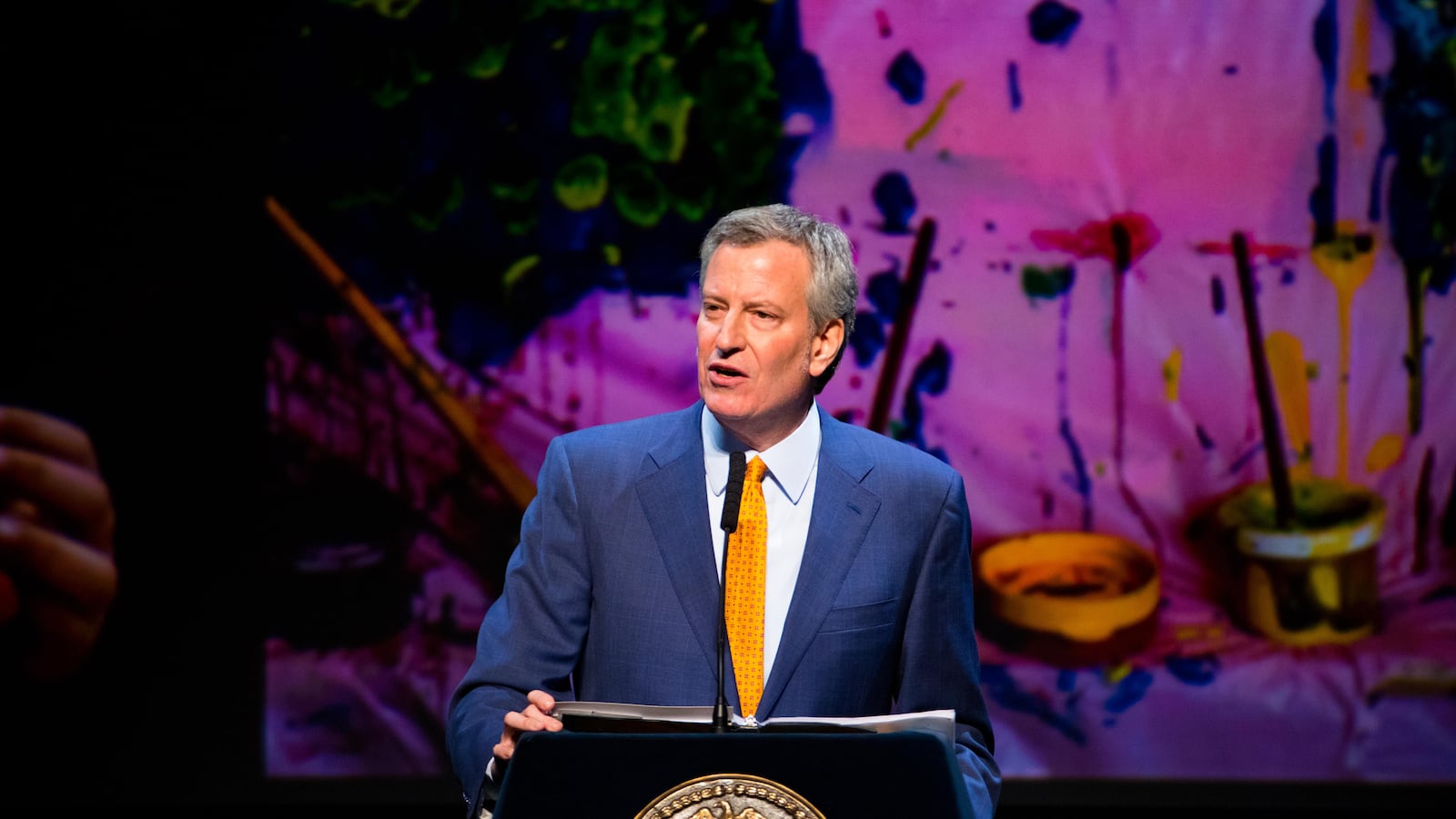In the wake of his decisive re-election in November, Mayor Bill de Blasio signaled that education would be a top priority during his second term.
“We need the school system to look entirely different in the coming years,” he said the day after the election. “That will be the issue I put my greatest passion and energy into.”
But if education is at the top of the mayor’s agenda, it did not form the centerpiece of his State of the City address Tuesday night. Instead, the roughly 70-minute speech highlighted other aspects of his agenda such as affordable housing and criminal justice reform, while casting President Donald Trump as a threat to the city — a reflection of de Blasio’s ambition to be a voice for progressives on the national stage.
His limited mention of the nation’s largest school system included a new $7 million civics-education program (a fraction of the city’s more than $24 billion education operating budget) and the ongoing expansion of his signature education program — pre-kindergarten — to include three-year-olds.
However, he offered no bold new vision for the city’s schools or even a clear argument for how his existing initiatives — a grabbag of programs ranging from computer-science classes to school-based health clinics — will push the system to new heights. While de Blasio’s cautious approach has allowed him to trumpet education-related successes while avoiding controversy, it’s also created challenges as he seeks a new schools chief and has some ostensible allies questioning his strategy.
Universal pre-K is “critical and I want to see the rollout of 3-K,” said Mark Treyger, chairman of the city council’s education committee, in an interview days before the speech. “But what’s the plan beyond?”
Rather than spell out a new plan, de Blasio doubled down on his existing initiatives Tuesday. He leaned heavily on his early-learning efforts, arguing that providing free preschool for three-year-olds would be “seismic.”
“To defeat structural racism and overcome this achievement gap we have to flip the script — we have to do something different when it comes to education,” de Blasio said during his speech at Brooklyn’s Kings Theater, before promoting his pre-K expansion. He added that his “next big goal” is to ensure all students are reading on grade level by the third grade — a promise he first laid out in his first term.
For the city’s older students, de Blasio touched on just one new policy initiative, an effort dubbed “civics for all.” The new program will encourage teachers to develop “rapid-response lesson plans” about current events, allow 17-year-olds to register to vote at school, and give every high school $2,000 that students will be able to spend through “participatory budgeting.”
The mayor did not mention some of the highest-profile elements of his current agenda, including his controversial “Renewal” program for struggling schools, a half-billion dollar initiative to infuse dozens of struggling schools with social services and academic support. It’s little surprise the mayor didn’t highlight the program: It has achieved mixed results, and the city recently announced that it will close nine of the schools, sparking opposition among some school communities.
De Blasio also skipped over some key pillars of his “Equity and Excellence” education agenda, including efforts to make computer science classes available to every student and expand access to AP courses.
It’s not the first time de Blasio’s annual State of the City speech focused primarily on issues outside of education, which covers roughly one-third of the city’s budget. Last year, for instance, his speech devoted just three of 94 paragraphs to the topic.
The perception that the mayor has not put forth a clear vision for the city’s schools could complicate his search for a leader to replace Chancellor Carmen Fariña, who plans to step down in the coming months. De Blasio said the city is conducting a national search, yet some observers have warned that candidates eager to influence the city’s education landscape might be wary of joining an administration that has already set out its education agenda and does not appear interested in launching new initiatives.
For their part, city officials said they were not having trouble recruiting candidates for the post, and broadly defended the mayor’s education agenda.
City schools “are stronger than ever with the highest-ever graduation rate, lowest-ever dropout rate, record-high college enrollment and college readiness,” city hall spokeswoman Olivia Lapeyrolerie wrote in an email. “This didn’t happen by accident, but is the result of a clear plan to improve our schools and deliver equity and excellence to all New York City children.”

